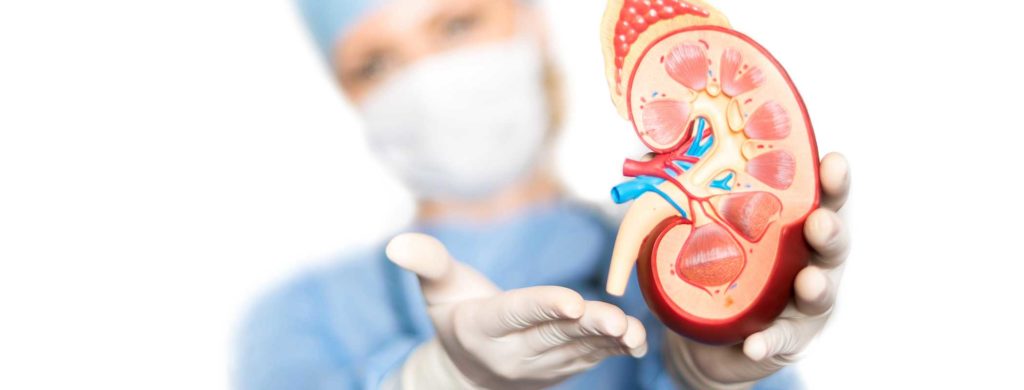
Doctor Of Urology is a medical specialty that focuses on the urinary tracts of males and females, as well as the reproductive system of males. Doctors who specialize in this field are known as urologists. They diagnose and treat conditions related to the kidneys, bladder, ureters, urethra, prostate, and male reproductive organs.
What is a Doctor Of Urology:
Doctor Of Urology Becoming a urologist requires a significant amount of education and training, but for those who are passionate about this field, it can be a fulfilling and rewarding career.
Education Requirements:
To become a urologist, you must first obtain a Bachelor’s degree from an accredited university. This degree can be in any field, but most aspiring urologists choose to major in pre-med, biology, or a related field. After obtaining a Bachelor’s degree, you must attend medical school and complete a Doctor of Medicine (MD) degree. Medical school typically takes four years to complete and covers topics such as anatomy, physiology, pharmacology, and medical ethics.
After completing medical school, aspiring urologists must complete a residency program in urology. This residency program typically lasts five years and provides hands-on training in the diagnosis and treatment of urological conditions. During this time, residents work closely with experienced urologists and gain valuable experience in surgical procedures and patient care.
Certification:
After completing a residency program, aspiring urologists must become certified by the American Board of Urology. To become certified, urologists must pass a written and oral examination that tests their knowledge and skills in urology. The certification process is rigorous and ensures that urologists are qualified to diagnose and treat urological conditions.
Job Outlook
The job outlook for urologists is positive. According to the Bureau of Labor Statistics, the employment of physicians and surgeons, including urologists, is projected to grow 4% from 2019 to 2029, which is about as fast as the average for all occupations. The demand for urologists is expected to increase as the population ages and requires more medical care.
Salary:
The salary of a urologist varies depending on several factors, including location, experience, and employer. According to Medscape’s 2021 Urologist Compensation Report, the average annual salary for urologists in the United States is $445,000. Urologists who work in academic medical centers or hospitals may earn slightly less, while those who work in private practice may earn more.
Specializations:
Urology is a broad field that encompasses many different specialties. Some urologists specialize in pediatric urology, which focuses on the diagnosis and treatment of urological conditions in children. Others specialize in female urology, which focuses on the diagnosis and treatment of urinary incontinence, pelvic organ prolapse, and other conditions that affect the female urinary tract. Still, others specialize in urologic oncology, which focuses on the diagnosis and treatment of cancers that affect the urinary tract and male reproductive organs.
Skills and Qualities:
To be a successful urologist, you must possess several key skills and qualities, including:
- Strong analytical and problem-solving skills: Urologists must be able to diagnose and treat complex medical conditions, which requires strong analytical and problem-solving skills.
- Excellent communication skills: Urologists must be able to communicate effectively with patients, family members, and other medical professionals.
- Attention to detail: Urologists must pay close attention to detail when performing surgical procedures and when interpreting diagnostic tests.
- Compassion and empathy: Urologists must be compassionate and
Doctor Of Urology How does Its Work?
A doctor of urology, also known as a urologist, specializes in the diagnosis and treatment of conditions related to the urinary tract and male reproductive system. Urologists work with patients of all ages and genders, and their patients may range from infants with congenital abnormalities to elderly individuals with prostate cancer. Here is a breakdown of how a doctor of urology works:
Diagnosis:
One of the primary functions of a urologist is to diagnose urological conditions. Patients may be referred to a urologist by their primary care physician, or they may seek out a urologist on their own. A urologist will typically conduct a thorough medical history and physical exam, which may include a genital exam and a prostate exam for male patients. In some cases, the urologist may order diagnostic tests such as a urine test, blood test, or imaging tests like ultrasound or MRI to help make a diagnosis.
Treatment:
Once a diagnosis has been made, the urologist will develop a treatment plan tailored to the patient’s specific condition. Treatment options may include medication, lifestyle changes, or surgery. For example, if a patient is diagnosed with kidney stones, the urologist may recommend medications to help pass the stones, or may perform a minimally invasive procedure to remove them. In the case of prostate cancer, the urologist may recommend surgery or radiation therapy.
Surgery:
Urologists are trained to perform both minimally invasive and more complex surgical procedures. Minimally invasive procedures, such as laparoscopic surgery, involve making small incisions and using specialized tools to perform the surgery. These types of procedures typically have a shorter recovery time and less postoperative pain than traditional open surgery. More complex procedures, such as radical prostatectomy or cystectomy, may require open surgery and a longer recovery period.

If you want to get amazing benefits by using this link
Follow-up Care:
After a patient has undergone treatment for a urological condition, the urologist will typically provide follow-up care to ensure that the treatment was successful and that the patient is healing properly. This may include follow-up appointments, imaging tests, or blood tests to monitor the patient’s condition. The urologist may also recommend lifestyle changes or additional treatment if necessary.
Collaboration with Other Medical Professionals:
Urologists often work closely with other medical professionals, including primary care physicians, oncologists, and radiologists, to ensure that their patients receive the best possible care. For example, a urologist may collaborate with an oncologist to develop a treatment plan for a patient with bladder cancer, or work with a radiologist to interpret imaging tests.
Conclusion:
In conclusion, a doctor of urology plays a crucial role in the diagnosis and treatment of conditions related to the urinary tract and male reproductive system. They use a variety of diagnostic tools and treatment options, including surgery, to provide the best possible care for their patients. Urologists also collaborate with other medical professionals to ensure that their patients receive comprehensive care.




More Stories
동탄출장마사지: 지친 일상 속 힐링의 정답
What Is Silver Bullion? How and Where to Buy Silver Bullion and Silver for Sale
수원출장마사지: 바쁜 일상 속 숨통을 틔워주는 힐링의 시간